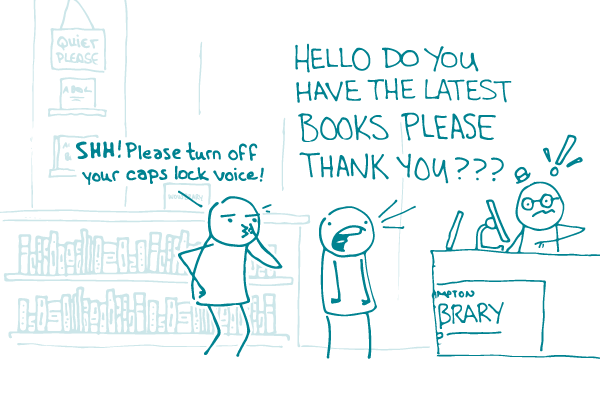
Let’s be honest — how many times have you gotten an email written in all caps that has left you with a positive impression? Never, right? Except maybe that email letting you know YOU WON THE LOTTERY!
Fantasies aside, a quick survey of folks at We ❤︎ Health Literacy Headquarters shows that getting an email in all caps leaves the reader feeling that the author:
- Is angry and yelling
- Doesn’t have the vocabulary to get his point across
- Must be working on an ancient computer that doesn’t have different font styles to indicate emphasis
- Accidentally hit the “caps lock” button when she fell asleep on her keyboard
In addition to leaving us with an all-around yucky feeling, the consensus is that using all caps negatively affects readability and legibility. Most people read by scanning the shapes of letters. Using all capital letters removes a lot of that variation — forcing the reader to work harder to understand the text.
Don’t believe us? Compare these examples:
- If you need a nurse right away, dial 111 on your bedside phone.
- IF YOU NEED A NURSE RIGHT AWAY, DIAL 111 ON YOUR BEDSIDE PHONE.
Now ask yourself:
- Which one of those would you prefer to read when you’re sick, stressed, and confused?
- Which version makes it easier to scan and find the emergency number?
The bottom line: Do your readers a favor and unlock your caps.
Browse recent posts